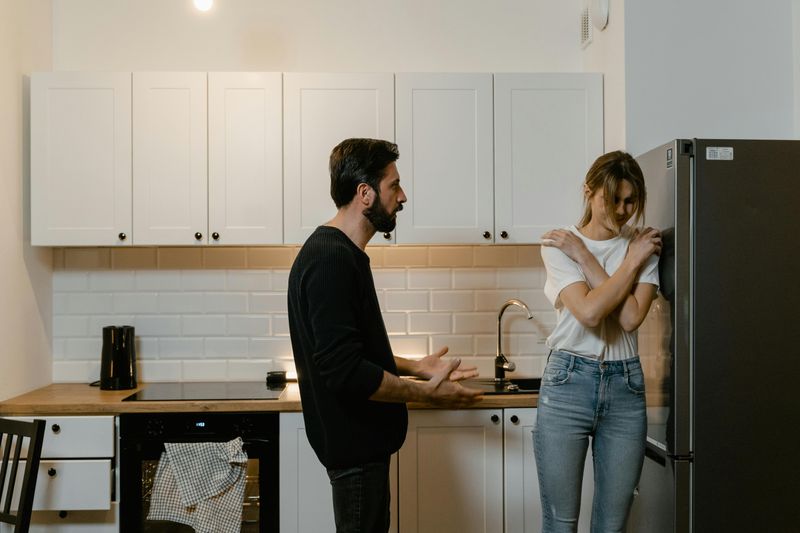10 Things Toxic Partners Say to Keep You Hooked

Toxic relationships can be hard to spot when you’re in them. The words your partner uses might seem caring on the surface but actually hide control and manipulation. Learning to recognize these harmful phrases can help you break free from unhealthy patterns and protect your well-being. Here are ten common statements toxic partners use to keep you under their influence.
1. “No one will ever love you like I do”

This classic manipulation tactic aims to make you believe you’re unlovable to anyone else. Your partner creates a world where they’re your only option for companionship. They’re essentially cutting you off from believing in your own worth.
By planting this seed of doubt, they ensure you’ll stay, fearing you’ll end up alone if you leave. This statement reflects their insecurity, not your value. Healthy love lifts you up and acknowledges your worth, never suggesting you’re lucky just to have them.
2. “You’re too sensitive”

When you express hurt feelings and your partner dismisses them as overreaction, they’re gaslighting you. This phrase shifts blame onto you instead of addressing their harmful behavior. Over time, this makes you doubt your emotional responses and perceptions.
You start questioning whether your feelings are valid or if you’re really the problem. Remember: having emotional reactions to hurtful behavior is normal. A healthy partner acknowledges your feelings even when they don’t understand them, rather than making you feel crazy for having them.
3. “I’m the only one who truly understands you”

Framing themselves as the only one who truly understands you may seem caring at first, but it often lays the groundwork for emotional control. By dismissing the value of your other relationships, they slowly disconnect you from your support system.
When you believe only one person gets you, you naturally drift away from others who might recognize the toxic patterns in your relationship. Healthy relationships encourage outside connections. Real understanding doesn’t require cutting off other perspectives – it thrives when you have a balanced social circle that includes, but isn’t limited to, your partner.
4. “If you really loved me, you would…”

If someone says “you’d do this if you really loved me,” that’s not love—it’s control. At first, the favors might seem harmless, but over time, the pressure builds. Suddenly, you’re doing things just to prove your feelings—and that’s not fair.
They might ask you to give up hobbies, change your appearance, or cut off relationships – all under the guise of proving your love. Love shouldn’t come with constant tests or conditions. Real love respects boundaries and doesn’t demand proof through sacrifice or submission.
5. “I’m sorry you feel that way”

This fake apology shifts responsibility away from the toxic partner’s actions and onto your feelings. It sounds like they’re apologizing, but they’re actually refusing to take accountability for hurting you. The subtle message is that your feelings are the problem, not their behavior. This non-apology leaves you feeling unheard and invalidated while allowing them to appear reasonable to outsiders.
A genuine apology acknowledges specific actions, expresses real remorse, and includes plans to change the behavior. It focuses on what they did wrong, not on your reaction to it.
6. “You’re lucky to have me”

When your partner regularly reminds you how fortunate you are to be with them, they’re establishing a power imbalance. They position themselves as the prize in the relationship while suggesting you bring less value.
This statement creates a debt mentality where you feel you owe them gratitude just for their presence. You become more willing to tolerate poor treatment because you’ve been conditioned to believe you should be thankful for whatever you get. Equal partnerships don’t keep score or create hierarchies of worth. Both people should feel lucky to have found each other, not just one.
7. “Look what you made me do”

When someone says they acted out because of you, that’s a huge red flag. It shifts all the blame for their bad behavior—like shouting or breaking things—onto your shoulders. It’s manipulative, and it works because you care enough to take responsibility that isn’t yours.
You start walking on eggshells, trying to avoid “triggering” their negative responses, instead of recognizing that they’re responsible for managing their reactions. Adults are accountable for their own behavior regardless of circumstances. No one “makes” another person act abusively – that’s always a choice.
8. “You’re crazy/You need help”

Labeling your emotional responses as instability is a tactic meant to silence and discredit you. Rather than engaging with the concerns you raise, a toxic partner reframes your reactions as evidence that you are the issue.
The tactic is especially harmful because it uses mental health stigma as a weapon. You might start doubting your own perceptions and wondering if you really are overreacting or imagining problems. Healthy partners discuss concerns respectfully, even when they disagree. They don’t try to make you question your sanity or suggest that having emotions means something is wrong with you.
9. “I’ll change, I promise”

These words often appear when you’re at your breaking point and considering leaving. The toxic partner suddenly recognizes all their faults and vows dramatic improvement – just enough to keep you from walking away.
Without real action, this cycle of promises becomes a powerful hook. You stay because you want to believe in their potential for change, remembering the good person you glimpsed beneath the toxicity. True change requires consistent effort, not just words in moments of crisis. Watch patterns over time, not temporary improvements when they fear losing you.
10. “Nobody’s perfect – this is normal”

By framing harmful patterns as common or “normal,” a toxic partner shifts the blame to your expectations rather than their behavior. They’ll point to other relationships—or fictional ones—to convince you that what you’re experiencing is just part of love. It’s not.
The goal is to lower your standards so you accept treatment you shouldn’t have to tolerate. While no relationship is perfect, healthy ones don’t include consistent patterns of disrespect, control, or emotional harm. Don’t let someone convince you that toxicity is just part of normal relationship struggles.

Comments
Loading…